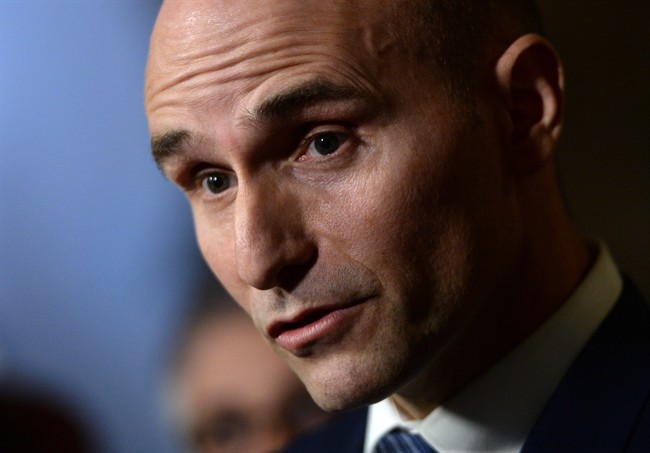The Liberal government could be taking a hard look at the possibility of a guaranteed annual income after it invited one of Canada’s leading experts on the subject to speak at a pre-budget hearing in Ottawa on Thursday.

University of Manitoba health economist Evelyn Forget spoke in the House of Commons about the benefits of a guaranteed annual income (GAI), or basic annual income, and how it could replace the existing, often complicated, patchwork of social assistance programs.
What is a guaranteed annual income?
Forget told Global News in a phone interview Friday the a GAI would be in the neighbourhood of $18,000 a year for every Canadian.
“If people have no income from any other source you get a certain agreed upon level and then as wage income increases, if you go out for example and earn $100, your benefit declines by $50 so you get to keep half of anything you earn,” she said.
WATCH: How a guaranteed minimum income could reduce poverty
Forget said the challenge is finding the right dollar figure that will raise people out of extreme poverty while maintaining a financial incentive to work.

Get weekly money news
Who would qualify for the guaranteed annual income?
She said that unlike provincial welfare programs a GAI model would be available to both the working poor as well as people on assistance.
“If you’re working a minimum wage at $11 an hour or whatever it is in your province you would come in well below the limit and you would receive supplementation under this scheme,” Forget said. “It creates a work incentive to ensure that people who work are always better off than if they didn’t work.”
Has the plan been implemented anywhere?
Forget conducted research on the idea, a program called Mincome, that took place between 1974 and 1978 in Dauphin, Man., and Winnipeg that provided a guaranteed minimum income for some of its residents. She said the benefits of a GAI include lower poverty rates, less hospital visits and increased high school completion rates.
However, a 2015 report from the Fraser Institute suggested while the idea is appealing, it would not work in Canada. It suggested one of the biggest hurdles would be getting all levels of government on board with a single program instead of the number of social assistance programs that exist today.
READ MORE: Reduce income gap through guaranteed annual income, former Tory senator says
The idea seems to be gaining traction at all levels of government across the country. Quebec Premier Philippe Couillard appointed a cabinet committee in January to look at creating a GAI for the province, while mayors from Calgary and Edmonton have supported the idea and Green Party Leader Elizabeth May included it in her party platform in the last federal election.
While the Liberals did not make a guaranteed annual income an election promise they included it among its policy resolutions in a mandate letter to Families, Children and Social Development Minister Jean-Yves Duclos.
Glen Hodgson, chief economist with Conference Board of Canada, likes the idea of a guaranteed annual income as it has to the potential to reduce bureaucratic costs.
“I think there is a chance to actually streamline administration, reduce massive administrative costs being felt by the feds, provinces and cities,” he said.
READ MORE: A country with no poverty: is a guaranteed annual income the answer?
Hodgson says under the current employment insurance system once a person applies for welfare, if they find a job the quickly begin losing benefits.
“If they take the initiative and go out and find a job we penalize them by taking big chunks of their other income,” said Hodgson. “The attractiveness of the guaranteed income model is you can have a very low marginal tax rate and provides the incentive to actually go out and earn more without losing their base. And then the higher your earnings, the higher your tax rate becomes. And at some point you become financially independent.”
Similar ideas are being looked at by other countries. Switzerland is set to vote on providing a guaranteed national income for all residents, while Finland is working on a proposal for a tax-free income supplement for all its citizens.








Comments